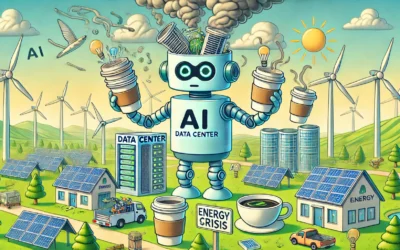AI Chatbots vs. Live Chat – Finding the Perfect Balance for Customer Engagement

In today’s fast-paced digital landscape, businesses are constantly seeking innovative ways to enhance customer experience and streamline communication channels. Among the myriad of options available, two contenders stand out: AI chatbots and live chat support. But which reigns supreme? Join us as we delve into the debate to determine the ideal solution for your customer engagement strategy.
The Rise of AI Chatbots:
AI chatbots have revolutionized customer service by providing instantaneous responses to inquiries, 24/7 availability, and scalability for handling large volumes of queries simultaneously. Powered by machine learning algorithms, these virtual assistants can understand natural language, interpret user intent, and deliver personalized interactions, all without the need for human intervention.
Advantages of AI Chatbots:
- Instantaneous Responses: AI chatbots offer immediate assistance, eliminating the need for customers to wait in queues or navigate through complex IVR systems.
- 24/7 Availability: With AI chatbots, businesses can provide round-the-clock support, catering to customers in different time zones and accommodating late-night inquiries.
- Scalability: AI chatbots can handle a high volume of inquiries simultaneously, ensuring consistent service quality even during peak hours or seasonal spikes in demand.
- Cost Efficiency: Implementing AI chatbots can lead to significant cost savings compared to hiring and training human agents for customer support roles.
The Power of Live Chat:
While AI chatbots offer unparalleled efficiency and scalability, live chat support adds a human touch to customer interactions, fostering empathy, trust, and rapport. With live chat, customers have the opportunity to engage with a real person in real-time, receiving personalized assistance and tailored solutions to their queries.
Advantages of Live Chat:
- Human Touch: Live chat support enables businesses to connect with customers on a personal level, building relationships and fostering loyalty through genuine interactions.
- Complex Query Resolution: Human agents are better equipped to handle complex inquiries, navigate nuanced conversations, and provide empathetic support for sensitive issues.
- Customized Solutions: Live chat agents can offer personalized recommendations, troubleshoot technical issues, and guide customers through the decision-making process with tailored solutions.
- Upselling Opportunities: Human agents can identify upselling opportunities, provide product recommendations, and offer additional services based on the customer’s needs and preferences.
The Pitfalls of Outsourcing Live Chat Support:
While outsourcing live chat support may offer cost savings and scalability benefits, it presents several challenges that can compromise customer experience and brand credibility.
Challenges of Outsourcing:
– Lack of Brand Consistency: Outsourced agents may struggle to maintain brand consistency, leading to inconsistencies in messaging and customer service standards.
– Communication Barriers: Language barriers and cultural differences can impede effective communication between outsourced agents and customers, resulting in misunderstandings and frustration.
– Limited Product Knowledge: Outsourced agents may lack in-depth knowledge about products or services, leading to subpar support and inaccurate information provided to customers.
– Reduced Flexibility and Control: Outsourcing limits businesses’ ability to adapt and respond swiftly to customer needs, hindering flexibility and personalized solutions.
– Data Privacy Concerns: Entrusting sensitive customer data to third-party vendors raises concerns about data privacy and security risks, exposing businesses to potential breaches and compliance violations.
Finding the Perfect Balance:
In the quest for optimal customer engagement, businesses must strike a balance between the efficiency of AI chatbots and the empathy of live chat support. By integrating AI chatbots for routine inquiries and basic troubleshooting, businesses can streamline operations, reduce response times, and free up human agents to focus on complex queries and high-touch interactions.
Conclusion:
In the age of digital transformation, both AI chatbots and live chat support play integral roles in enhancing customer experience and driving business growth. While AI chatbots offer efficiency and scalability, live chat support adds a human touch and personalized touchpoints to customer interactions. By leveraging the strengths of both solutions, businesses can create a seamless and dynamic customer engagement strategy that meets the diverse needs of their audience.
In the end, it’s not a matter of AI chatbots versus live chat, but rather how businesses can harness the power of both technologies to deliver exceptional customer service and forge meaningful connections with their customers in the digital era.






